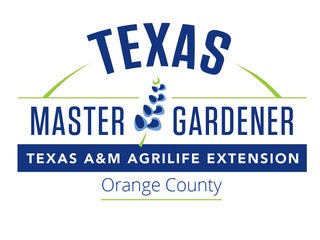Master Gardeners: Pollinators need your help
Published 12:58 am Saturday, April 17, 2021
|
Getting your Trinity Audio player ready...
|
By Sheri Bethard
Texas Certified Master Gardener, Orange County
Winter Storm Uri took a toll on a lot of our flowering plants, both native and perennials. Pollinators such as bees, butterflies, moths, small animals, birds and even bats need our pollinator plants in order to continue thriving. Even tho most of the wildflowers are starting to bloom, many of our plants have been set back many weeks before getting to the point of forming flowers. While we wait for our native and perennial plants to come back to life, you can help our pollinators by planting “ready made” flowering plants for them, thus helping until the natives and perennials are back to their norm.
Planting already flowering annuals or fast-growing perennials which bloom the first year will provide relief for these creatures. Some good plants to start with are Sweet Alyssum and Calendula. Most of them are now blooming in the stores. Sunflowers are fast growing and bloom early and this is the year of the Sunflower.
Some herbs you can consider planting is Basil and Bee Balm (Monarda) as bees love them. Salvia/Sages are also good plants to use with most of them being perennials. If you want to keep it year after year, check the tag to make sure your selection is a perennial and not an annual Salvia/Sage so you won’t be upset if it does not return the next year. Hummingbirds like their deep throat.
Butterflies and moths like the composite type flowers like those in the Aster Family. Cosmos and Calendula are fast-growing producing flowers early. Some of the plants you can select for your pollinator garden or any garden are:
Aster, Bush Morning Glory, Catnip, Flame Acanthus, Greg’s Blue Mist Flower, Larkspur, Mexican Hat, Zinnias just to add a few to the ones listed above.
If you are interested in being a pollinator friendly yard year-round, here are some tips to get you started. Start out with woody plants such as Red Maple since they are a great bee pollinator in early spring. Vines such as Native Honeysuckle (not the Japanese kind we all are familiar with), Crossvines, Coral Vines and Flame Acanthus are good perennial vines with flowers most of the summer.
Shrubs to consider are Almond Verbena and Glossy Abelia which bloom for about 5-6 months. Roses are also good, but they should be the old-fashioned single rose, not the hybrids which are currently available. Then for mid-summer to fall bloom the butterfly bush is a good option. They come in shades of blue and purple along with pink but the blue and purple are the best for pollinators.
Then there are vegetables which support our pollinators along with pollinating them in order to produce. Peppers and strawberries are well liked by them. Vegetables, such as cabbage and kale, which bolt and flower, do not remove them for a while longer as these are well liked also.
Pollinators also need places to shelter such as small boxes, pieces of wood they can bore into, or cut sections of bamboo just to give examples. When making your garden, leave some bare soil for those needing the soil for making nests in. Water is another thing they need. Placing a water source in your garden will help since all do not get their moisture from the flowers.
For more on pollinators check out https://tpwd.texas.gov/education/bioblitz/guides by the Texas Parks & Wildlife. There you will find many links to refer to on pollinators.
The Orange County Master Gardeners Association would like to thank all the people who visited and purchased plants at our Annual Bloomin’ Crazy Plant Fair & Sale. We had an outstanding turnout. We apologize to those of you waiting in line, but we wanted to make sure everyone would be as safe as possible during the COVID-19 pandemic and to keep the pavilion from being overcrowded. Thank you to those volunteering to wear their masks to help make it a safer place to shop. We are sorry we ran out of many items you were looking for as the demand was much greater than we anticipated, and plants were hard to come by due to the February storm. We also lost plants we had been growing since September.
Remember if you have a horticultural question, please contact our Hot-Line Tuesday and Thursdays from 10 a.m. – 2 p.m. at 409 882-7010, email at ocmg1990@gmail.com, on Facebook Orange County Texas Master Gardeners or thru our website Contact page at https://txmg.org/org.






